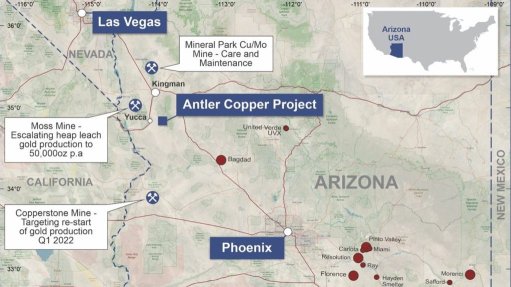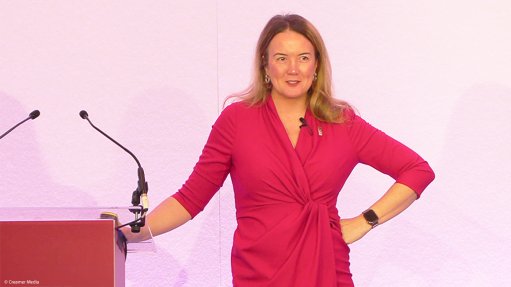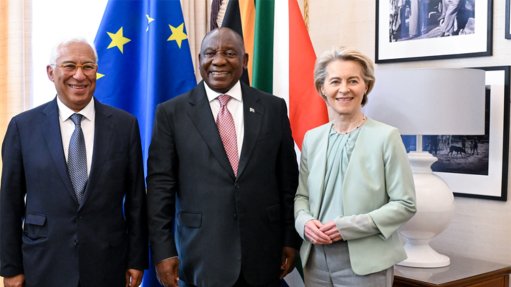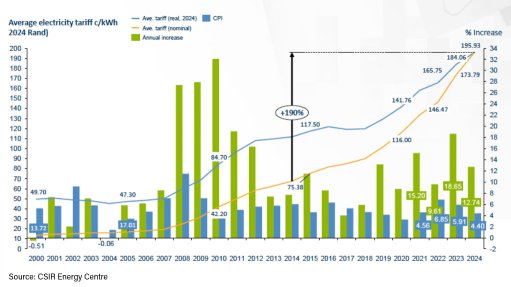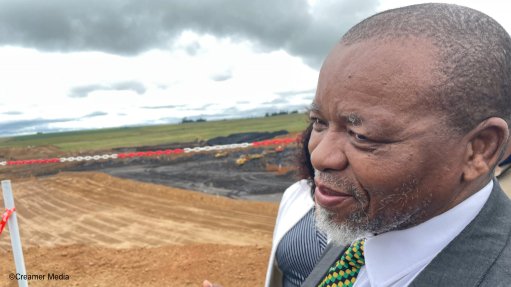Diversified fuel source required to fuel local facilities

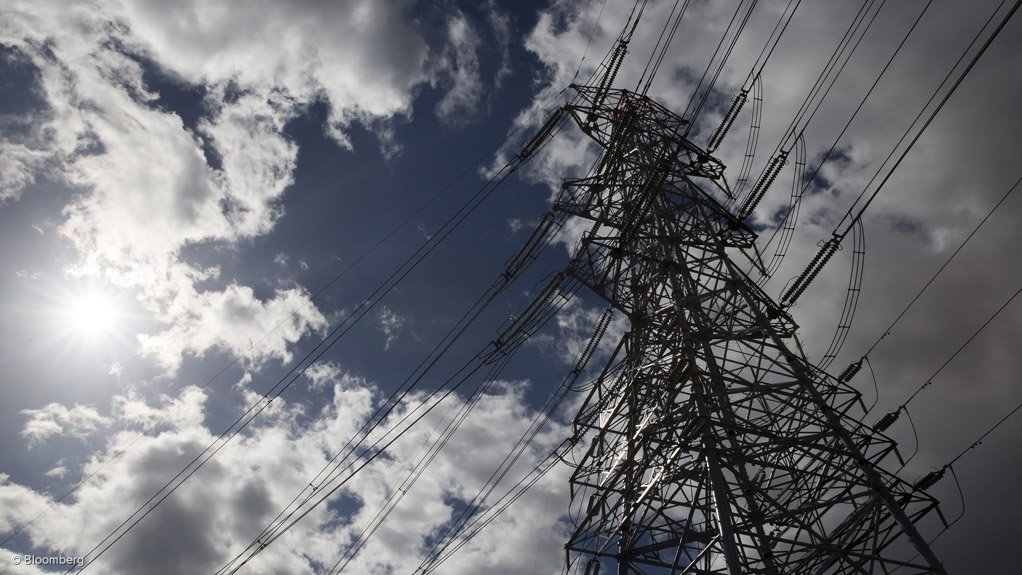
GAS-TO-POWER PROGRAMME The Department of Energy’s GPP will facilitate the construction of the base infrastructure to distribute gas to different sectors and industries
Photo by Bloomberg
South Africa requires a diversified fuel source for power generation, and natural gas is an ideal fuel, as several facilities in the country are compatible with natural gas to fuel power plants, and the resulting infrastructure will benefit other industries and end- users, says engineering consultancy WSP|Parsons Brinckerhoff power generation director Wayne Lindecke.
The Department of Energy’s (DoE’s) gas-to-power programme (GPP) will facilitate the construction of the base infrastructure to distribute gas to different sectors and industries, he notes.
The programme currently entails a 2 000 MW combined-cycle gas turbine (CCGT) facility in Richards Bay, as well as a 1 000 MW CCGT facility in Coega, outside Nelson Mandela Bay. The scope of the programme will ensure the potential provision of natural gas to third-party offtakers.
Currently, there are numerous development consortia assessing these two opportunities; however, only two successful entities will be awarded the projects at the respective sites.
“The programme aims to establish a more mature gas market, but it is primarily focused on the provision of a diversified fuel for power generation. This makes things a bit more complicated, as the programme’s intent is also to attract independent power producers (IPP) for power plants.”
With the release of the project memorandum by the DoE in the fourth quarter of 2016, Lindecke notes that industries were anticipating a well-defined timeline in the second release of the memorandum – in November 2016 – in terms of how the department plans to release the request for proposals in April.
Lindecke further explains that, although April is the starting date for the official implementation of the programme, it will start only once entities have been issued with a document with which they are willing to prepare a bid on. Bidders will require at least six months for bid preparation, and thereafter another six months for the evaluation process by the department.
He further explains that, after the 12 months – in July 2018 (earliest) – the preferred bidders will be required to close their deals financially, which will require another six months. After this period, a minimum of 18 months will be required for construction.
“Assuming that everything is going according to plan and that these timelines are achieved, the first power produced by any of these projects can be expected only by July 2020, and not by 2019, as the DoE is aiming to achieve.”
Meanwhile, Lindecke says using gas for power generation has substantial benefits for generating electricity.
“Firstly, it is a cleaner fuel to burn, secondly, cycle efficiency using natural gas is higher than competitive technologies, and capital costs are lower than competitive technologies.”
He adds that the lead time to construct a significantly sized gas-fired power plant is less than that of a coal plant, with return on investment from a fuel-efficiency perspective being a “very attractive prospect”.
He enthuses that gas-to-power is “a phenomenal opportunity” for South Africa, and that the commercialisation of gas into a programme, such as the GPP, has multiple advantages across all sectors, including labour, legislative, financial, power plant development, engineering consulting and construction.
“The GPP is something that South Africa needs at this point in time. There is excitement in the industry, owing to the potential of the programme and the job opportunities that will be created through the foreign direct investment,” notes Lindecke.
He concludes that the challenge that the GPP faces is the bringing together of culturally different entities – gas utility companies and power generation IPP companies, inherently different, partnering with each other in a somewhat immature market.
Comments
Press Office
Announcements
What's On
Subscribe to improve your user experience...
Option 1 (equivalent of R125 a month):
Receive a weekly copy of Creamer Media's Engineering News & Mining Weekly magazine
(print copy for those in South Africa and e-magazine for those outside of South Africa)
Receive daily email newsletters
Access to full search results
Access archive of magazine back copies
Access to Projects in Progress
Access to ONE Research Report of your choice in PDF format
Option 2 (equivalent of R375 a month):
All benefits from Option 1
PLUS
Access to Creamer Media's Research Channel Africa for ALL Research Reports, in PDF format, on various industrial and mining sectors
including Electricity; Water; Energy Transition; Hydrogen; Roads, Rail and Ports; Coal; Gold; Platinum; Battery Metals; etc.
Already a subscriber?
Forgotten your password?
Receive weekly copy of Creamer Media's Engineering News & Mining Weekly magazine (print copy for those in South Africa and e-magazine for those outside of South Africa)
➕
Recieve daily email newsletters
➕
Access to full search results
➕
Access archive of magazine back copies
➕
Access to Projects in Progress
➕
Access to ONE Research Report of your choice in PDF format
RESEARCH CHANNEL AFRICA
R4500 (equivalent of R375 a month)
SUBSCRIBEAll benefits from Option 1
➕
Access to Creamer Media's Research Channel Africa for ALL Research Reports on various industrial and mining sectors, in PDF format, including on:
Electricity
➕
Water
➕
Energy Transition
➕
Hydrogen
➕
Roads, Rail and Ports
➕
Coal
➕
Gold
➕
Platinum
➕
Battery Metals
➕
etc.
Receive all benefits from Option 1 or Option 2 delivered to numerous people at your company
➕
Multiple User names and Passwords for simultaneous log-ins
➕
Intranet integration access to all in your organisation







